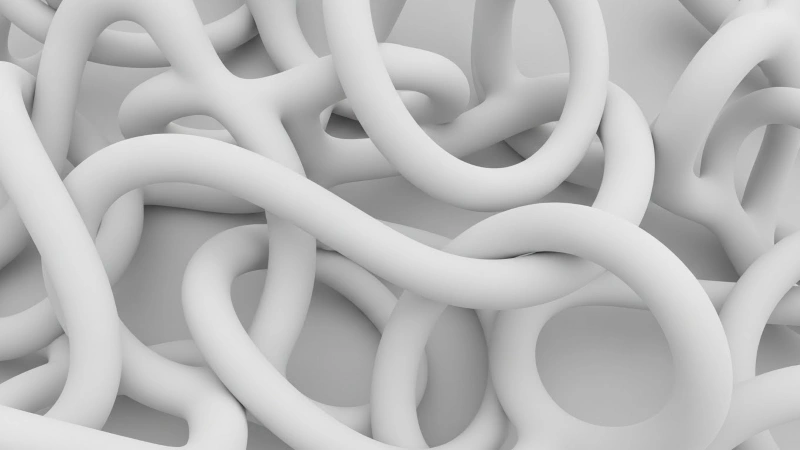
In the world of building systems and infrastructure, plumbing plays a critical role. However, many people confuse the roles of plumbing engineers and plumbers, assuming they are interchangeable. While both professionals are crucial to ensuring a building’s plumbing system functions properly, they have distinct responsibilities, qualifications, and expertise.
This article will explore the key differences between plumbing engineers and plumbers, helping you understand their unique roles in the construction and maintenance of plumbing systems.
Plumbing is an essential aspect of modern buildings and infrastructure. It involves the system of pipes, fixtures, and fittings used to distribute water and gas to buildings and remove waste. Properly designed and maintained plumbing systems are crucial for ensuring health and safety in residential, commercial, and industrial environments.
As building designs become more sophisticated, so too does the complexity of plumbing systems, making it important to differentiate between the roles of plumbing engineers and plumbers.
Both plumbing engineers vs plumbers play vital roles in the functioning of plumbing systems. However, their responsibilities, training, and areas of focus vary.
Plumbing engineers design and oversee the construction of plumbing systems, ensuring that they are efficient, sustainable, and compliant with local building codes. Plumbers, on the other hand, install, maintain, and repair these systems once they have been designed.
Plumbing engineering is the branch of engineering that deals with the design, installation, and maintenance of plumbing systems. Plumbing engineers work on the planning and design stages of plumbing systems, ensuring that water, gas, and waste are distributed efficiently throughout a building. They are responsible for ensuring that plumbing systems are safe, efficient, and aligned with the building’s overall design and energy efficiency goals.

The scope of plumbing engineering is broad, covering many aspects of plumbing system design and implementation. Plumbing engineers are involved in designing piping layouts, determining water flow requirements, specifying fixtures, and integrating plumbing systems with other building systems, such as heating, ventilation, and air conditioning (HVAC).
They also play a key role in ensuring compliance with local and international building codes, sustainability standards, and environmental regulations.
To become a plumbing engineer, one must typically complete a degree in mechanical engineering, civil engineering, or a related field, with a focus on plumbing systems. In addition to academic qualifications, plumbing engineers often need to obtain professional certifications, which may include becoming licensed as a professional engineer (PE). Key skills required for plumbing engineers include:
A plumber is a skilled tradesperson who installs, maintains, and repairs plumbing systems in residential, commercial, and industrial settings. Plumbers are responsible for ensuring that pipes, faucets, toilets, and other plumbing fixtures are installed and function properly. They also troubleshoot and repair issues such as leaks, clogs, and pipe bursts.
Plumbers perform a variety of tasks that keep plumbing systems in good working condition. Their core responsibilities include:
Becoming a plumber typically requires an apprenticeship, which involves both classroom learning and hands-on training under the supervision of an experienced plumber. Many plumbers also pursue certifications or licensure, depending on local regulations. The skills required for plumbers include:
One of the primary differences between plumbing engineers and plumbers is their education and training. Plumbing engineers typically hold a degree in engineering, which involves several years of academic study and professional certification. This extensive education provides them with the knowledge to design and plan complex plumbing systems for large buildings or infrastructure projects.
In contrast, plumbers usually complete an apprenticeship that combines on-the-job training with classroom instruction. Plumbers may also attend vocational schools to learn the trade, but their training focuses more on practical, hands-on skills rather than design and engineering concepts.

The scope of work is another key difference. Plumbing engineers are involved in the design and planning phases of plumbing systems. They work with architects, builders, and other engineers to ensure that plumbing systems are integrated effectively into the overall building design. They also focus on ensuring that plumbing systems are energy-efficient, sustainable, and meet all regulatory requirements.
Plumbers, on the other hand, are responsible for the physical installation and maintenance of these systems. While plumbing engineers design the system, plumbers execute the plan by installing pipes, fixtures, and other components. Plumbers are also tasked with ensuring that plumbing systems are functioning properly after installation, performing repairs when necessary.
Plumbing engineers possess a high level of technical expertise in the design and specifications of plumbing systems. Their focus is on ensuring that systems are optimized for energy efficiency and sustainability, and they often work with complex building systems. They are well-versed in computer-aided design (CAD) software and other tools that assist in creating detailed plumbing layouts.
Plumbers, while skilled in practical aspects of plumbing, do not typically need the same level of technical expertise in design. Their knowledge is focused on the installation, maintenance, and repair of plumbing systems rather than their design. Plumbers rely on blueprints and plans created by plumbing engineers to carry out their work.
In any construction or renovation project, plumbing engineers and plumbers work together, but their roles differ significantly. Plumbing engineers are responsible for ensuring the plumbing systems are well-designed, efficient, and meet regulatory standards. They work on system specifications, design documentation, and ensure the building’s plumbing system functions as intended.
Plumbers, on the other hand, are responsible for the actual installation and day-to-day operations of plumbing systems. They implement the designs provided by plumbing engineers, ensuring that all pipes, fixtures, and connections are installed correctly.
Plumbing engineers typically work in office environments or construction sites, collaborating with architects, contractors, and other engineers. Their work involves planning, designing, and overseeing the installation of plumbing systems, which may involve field visits to check on construction progress.
Plumbers work primarily on construction sites, in homes, or in commercial buildings. They spend much of their time physically installing pipes, fixtures, and systems, as well as troubleshooting and repairing issues in existing plumbing systems.
You should hire a plumbing engineer when:
You should hire a plumber when:
Small-Scale Projects: For smaller plumbing jobs or repairs in existing systems, hiring a plumber is more appropriate than hiring a plumbing engineer.
While both plumbing engineers and plumbers work with plumbing systems, their roles are distinct. Plumbing engineers are involved in the design, planning, and technical aspects of plumbing systems, ensuring they are energy-efficient, compliant with building codes, and properly integrated into building designs. Plumbers, on the other hand, focus on the installation, maintenance, and repair of these systems.
Both professions play complementary roles in ensuring the functionality, efficiency, and sustainability of modern plumbing systems. Whether designing a new system or maintaining an existing one, both plumbing engineers and plumbers are essential to modern infrastructure.
By understanding the key differences between plumbing engineers and plumbers, you can make informed decisions about when to hire each professional, ensuring that your plumbing systems are designed and maintained to meet the highest standards.
About the Author
With a deep understanding of what companies need to build top-performing remote teams and fully remote departments, his journey with Uptalent has been dedicated to creating exceptional remote work solutions and helping companies thrive with top-tier remote talent.
Expertise:
Explore these related articles to dive deeper into the topic and discover more insights.

How a Digital Marketing Strategist Helps You Build Effective Campaigns

5 Key Benefits of SEO Outsourcing for Digital Marketing Agencies

The Importance of a Payroll Specialist in Preventing Payroll Errors